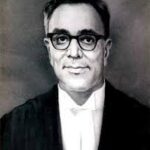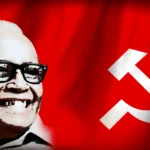Bagha Jatin: A Hero of India’s Freedom Struggle – 8 Powerful Facts About His Legacy
Bagha Jatin, born as Jatindranath Mukherjee, was a fearless revolutionary who became an emblem of bravery and sacrifice during India’s fight for independence. He was one of the key figures of the early 20th century who fought against British colonial rule with unmatched valor and unwavering determination. Despite his relatively short life, his courage and passion for freedom left an indelible mark on Indian history.
Early Life and Background
Bagha Jatin was born on December 7, 1879, in the village of Kadirpur, West Bengal. His family, though not wealthy, was known for its intellectual and cultural influence. Jatin was introduced to the ideas of freedom and nationalism from an early age, partly due to his exposure to the Indian Renaissance and the influence of figures like Rabindranath Tagore.
He attended the Bengali medium schools and later joined the Scottish Church College in Kolkata, where he developed a keen interest in literature, history, and philosophy. His education helped shape his revolutionary ideas, and it was during this time that Jatin grew increasingly disillusioned with British rule.
Path to Revolution
Jatin’s transformation into a freedom fighter came when he was inspired by the teachings of various nationalist leaders like Bipin Chandra Pal and Subhas Chandra Bose. His early revolutionary activities began in the early 1900s when he became associated with Anushilan Samiti, a revolutionary group based in Bengal that sought to oust the British by any means necessary.
His participation in the Samiti exposed him to radical nationalist ideas, which inspired him to take up arms against the British rulers. His courage earned him the name “Bagha” (meaning “tiger”), a title that reflected both his fierce determination and his unwavering commitment to India’s freedom.
Role in India’s Independence Movement
Bagha Jatin’s most significant contribution to India’s struggle for independence was his role in organizing and leading armed resistance against the British. He firmly believed that passive resistance would not be enough to free India, and he advocated for more direct action to confront British rule.
- Revolutionary Activities: Jatin, along with his comrades, carried out several daring actions aimed at disrupting British authority in Bengal. One of the most notable activities was his attempt to procure arms from foreign sources to supply his revolutionary group. He planned several attacks on British officers and institutions, hoping to weaken the colonial establishment.
- The Fateful Encounter: In 1915, Bagha Jatin and his companions were ambushed by British police near Balasore (in modern-day Odisha). The encounter resulted in Jatin being seriously wounded. Despite his injuries, he continued to fight bravely until he was captured. His capture led to widespread protests in Bengal, with the people mourning the loss of one of their greatest heroes.
Bagha Jatin’s Impact and Legacy
Bagha Jatin’s sacrifice for the cause of India’s freedom earned him eternal respect, not only from his fellow revolutionaries but also from the general public. His death on September 10, 1915, became a rallying cry for the Indian independence movement, inspiring countless others to take up arms against British oppression.
- Inspiration for Future Leaders: Bagha Jatin’s courage inspired several other freedom fighters, including Subhas Chandra Bose. His radical approach to fighting the British influenced many young Indians who were frustrated with the slow progress of the freedom movement.
- Cultural Impact: Bagha Jatin’s life and sacrifices became the subject of several songs, poems, and plays. His image was immortalized in popular Bengali culture as a fearless hero who died for the cause of India’s freedom.
- National Symbol of Resistance: His story continues to inspire generations of Indians, especially those who are passionate about the country’s independence. Bagha Jatin remains a symbol of defiance against colonial powers and a reminder of the sacrifices made by countless revolutionaries.
Frequently Asked Questions (FAQs)
1. Who was Bagha Jatin?
Bagha Jatin, born Jatindranath Mukherjee, was a revolutionary figure in India’s struggle for independence. He was known for his bravery and was one of the earliest revolutionaries who took up arms against British rule.
2. What did Bagha Jatin do for India’s independence?
Jatin was involved in several revolutionary activities, including planning armed resistance against British authorities. He was a key member of the Anushilan Samiti and led several revolutionary campaigns in Bengal.
3. Why was Bagha Jatin called “Bagha”?
The title “Bagha” means “tiger” in Bengali, reflecting Jatin’s fierce determination and courage in the face of danger. He was admired for his bravery in battle, and the name was a testament to his strength and resolve.
4. How did Bagha Jatin die?
Bagha Jatin was injured during an encounter with British police in 1915. Despite his serious wounds, he continued to resist until he was captured. He died on September 10, 1915, as a result of his injuries.
5. What is Bagha Jatin’s legacy?
Bagha Jatin is remembered as a hero of India’s freedom struggle. His radical approach to fighting British rule inspired future generations of revolutionaries and nationalists. His life and sacrifice are celebrated as a symbol of courage and resistance.
Key Facts About Bagha Jatin
- Born on December 7, 1879 in Kadirpur, Bengal.
- Name “Bagha”: Known as “Bagha” for his fierce courage and bravery.
- Revolutionary Leader: Key member of Anushilan Samiti, leading armed resistance against British rule.
- Heroic Death: Died on September 10, 1915, after being captured by British forces.
- Inspiration: His legacy continues to inspire revolutionary movements in India and is remembered in Bengali culture.
Conclusion
Bagha Jatin’s life was a testament to his unwavering commitment to India’s independence. His courage and radicalism in the face of adversity made him a symbol of resistance against colonial oppression. Though his life was cut short, his legacy continues to inspire millions, reminding them of the sacrifices made by countless unsung heroes in the struggle for freedom. Bagha Jatin’s story remains an integral part of India’s history, and his impact on the nation’s journey to independence is immeasurable.










